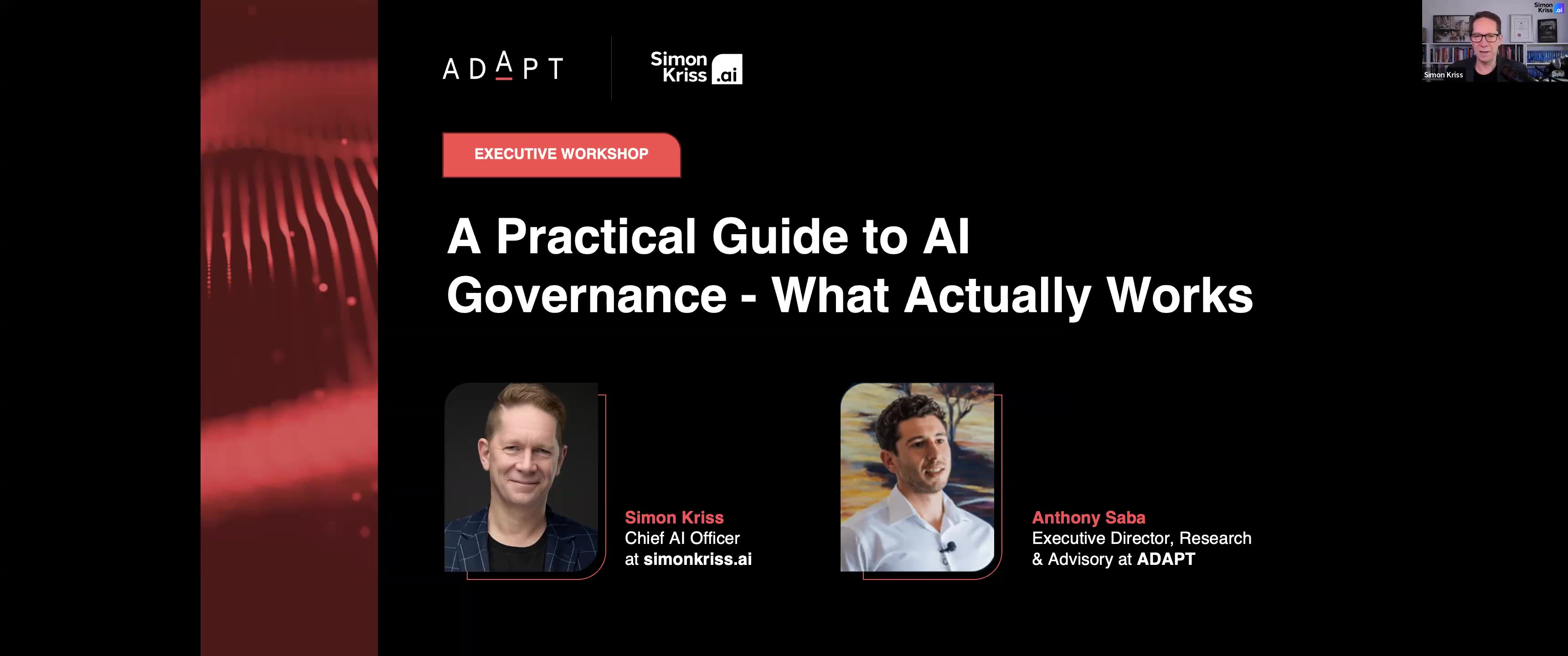Most Australian leaders see low ROI and poor readiness for AI adoption
In this CIO Edge keynote, ADAPT's Head of Analytics & Insights Gabby Fredkin reveals Australia’s state of AI maturity from 5,000+ surveys and interactions with the region’s top CIOs, CISOs, CFOs, CTOs, and digital leaders.In this CIO Edge keynote, ADAPT’s Head of Analytics & Insights Gabby Fredkin reveals Australia’s state of AI maturity from 5,000+ surveys and interactions with the region’s top CIOs, CISOs, CFOs, CTOs, and digital leaders.
AI responsibility and governance remain unsettled in most organisations.
While many leaders expect the emergence of a “Chief AI Officer” role, the majority of accountability currently sits with CIOs and Chief Data Officers, depending on whether AI is viewed as a technology or data challenge.
Questions remain about who owns AI’s benefits and risks, as well as how to manage human versus digital agents at scale.
Survey findings show that 23% of organisations offer no formal training in AI, 38% provide only passive guidelines, while just 6% mandate training.
Only 22% are actively embedding AI support through structured, value-adding programs.
This lack of preparation highlights a critical gap given AI’s potential impact on decision-making and productivity.
The performance picture is mixed.
While 61% of organisations see productivity as the top metric for evaluating AI, followed by cost savings and customer experience, most have yet to realise returns.
Among CISOs, 76% say their organisations are not ready to adopt AI safely.
Heads of data are cautious, with 72% reporting that AI has not delivered expected ROI, while just 4% of CFOs believe AI initiatives are currently effective in creating business value.
Despite these challenges, customer service and help-desk automation remain the most promising use cases, with organisations eager to scale operations without increasing headcount.
Importantly, research shows no net impact on jobs in Australia so far, countering media-driven fears of mass displacement.
Risk management is another critical concern. Around 88% of leaders view human oversight of AI decisions as essential, while 86% are highly concerned about the level of access agents have to organisational data.
Experiments in storing and retrieving AI-processed information highlight tensions between efficiency for agents and usability for humans, raising operational risks.
The demand for benchmarking against peers is growing, with leaders keen to understand use cases, maturity levels, and investment patterns across industries.
The findings suggest that while enthusiasm for AI is high, readiness, governance, and ROI remain major hurdles.
Bridging the training, performance, and risk management gaps will be vital for AI’s sustainable adoption.
Key takeaways:
- Accountability is unclear: Most organisations still place AI responsibility with CIOs or Chief Data Officers, as only a minority have a defined “Chief AI Officer” role. Clear ownership of both benefits and risks is still lacking.
- Readiness and ROI are low: 76% of CISOs say their organisations aren’t ready for AI, 72% of data leaders report unmet ROI expectations, and only 4% of CFOs believe AI is delivering value, making AI largely a negative investment today.
- Training and risk management gaps: 23% of organisations provide no AI training, and only 6% mandate it. Meanwhile, 88% of leaders stress human oversight of AI decisions and 86% worry about agents’ access to organisational data, underscoring the need for stronger governance.



























